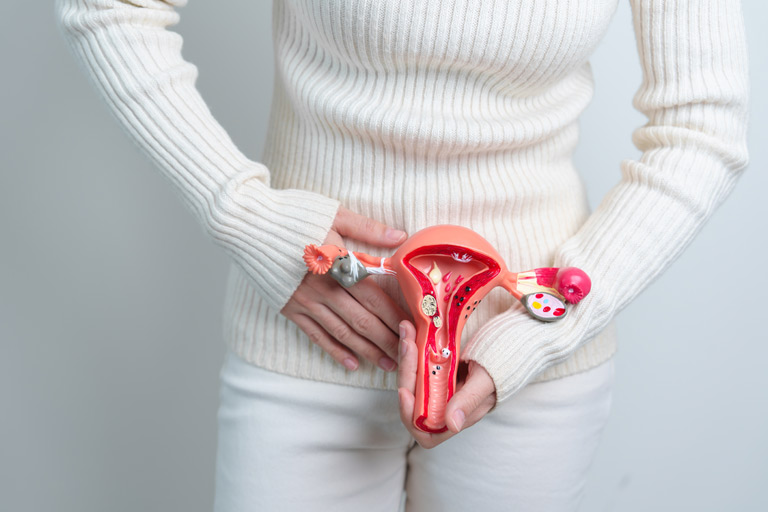From Caffeine to Alcohol: A Rundown on Substances and Their Impact on Fertility
Substance consumption is a common part of modern life, with caffeine, alcohol, and tobacco widely used in social and personal settings. The ease of access to these substances has made them a routine part of daily life for many people. However, rising infertility rates have led to growing concerns about how these substances might be affecting reproductive health.
Infertility is on the rise in many countries, including Canada, where recent studies estimate that 1 in 6 couples experience fertility challenges. TCM views health as a balance of energy and organs, and its holistic perspective provides valuable insights into how substances such as caffeine, alcohol, and recreational drugs may influence fertility.
Fertility from a Traditional Chinese Medicine Perspective
Traditional Chinese Medicine is rooted in the concept of balance and harmony. At its core are the principles of Yin and Yang, Qi (the body’s vital energy), and the Five Elements (Wood, Fire, Earth, Metal, Water). According to TCM, the harmonious interaction between these elements is essential for maintaining health. Fertility is seen as a reflection of this balance, with an emphasis on maintaining a healthy flow of Qi through the body’s organ systems.
The Kidneys, Liver, and Spleen are considered the key organs for reproductive health in TCM. The Kidneys are seen as the storehouse of vital essence, which directly influences fertility. The Liver governs the smooth flow of Qi and blood, both of which are essential for reproductive function, while the Spleen supports digestion and nourishment, providing energy to sustain reproductive health. When these organs are in harmony, fertility is optimized. Disruptions caused by lifestyle factors, including substance use, can interfere with this delicate balance and lead to fertility issues.
Caffeine

Caffeine is a widely consumed stimulant that can affect the body’s energy flow. From a TCM perspective, its excessive intake can disturb the balance of Qi and lead to reproductive issues.
- Warming Nature of Caffeine: In TCM, caffeine is considered to have a warming effect on the body. Excessive warmth can lead to an over-activation of the Yang energy, which may deplete Yin energy. This imbalance can impact reproductive organs, particularly in those with pre-existing Yin deficiencies, leading to challenges with fertility.
- Impact on Kidney Qi: The Kidneys play a crucial role in fertility by storing essential energy. Caffeine is thought to overstimulate Kidney Qi, leading to a depletion of this vital energy over time. This depletion can weaken reproductive functions and reduce fertility in both men and women.
- Effects on Sleep and Stress: Caffeine can interfere with sleep quality, which is critical for maintaining the body’s natural rhythms. In TCM, poor sleep disrupts the balance of Qi and can negatively impact reproductive health. Furthermore, caffeine’s stimulating effects can exacerbate stress, another factor linked to fertility problems.
- Excessive Heat and Hormonal Imbalances: In cases of excessive caffeine intake, TCM practitioners may observe signs of internal heat, which can contribute to hormonal imbalances. These imbalances may disrupt ovulation or sperm quality, leading to decreased fertility.
Alcohol
Alcohol is another substance with potential effects on reproductive health. TCM views alcohol as having a dampening and warming nature, which can disrupt the balance of Yin and Yang.
- Dampness and Spleen Function: Alcohol is associated with dampness in TCM, which can impair the function of the Spleen. The Spleen’s ability to process nutrients and provide energy is essential for fertility, and the accumulation of dampness can block this function, leading to fertility challenges.
- Overheating the Liver: Alcohol tends to heat the Liver, potentially causing the Liver Qi to become stagnant. This stagnation can lead to irregular menstrual cycles and other reproductive issues in women, while in men, it can affect sperm production and quality.
- Depletion of Kidney Essence: Similar to caffeine, alcohol is believed to deplete the Kidney essence. This essence is vital for reproductive energy, and excessive alcohol consumption over time can lead to a significant decline in fertility.
- Blood Stagnation: Alcohol may also contribute to blood stagnation, particularly in the lower body, which can impair the health of reproductive organs. Blood stagnation is often linked with painful or irregular periods and may hinder conception.
- Impact on Emotional Balance: In TCM, alcohol is said to disturb the mind and spirit, leading to emotional imbalance. Emotional stress can disrupt the flow of Qi and blood, negatively affecting fertility. Managing emotions is considered key in maintaining reproductive health.
Tobacco and Nicotine

Tobacco and nicotine are commonly used substances, but from a TCM perspective, they can have harmful effects on reproductive health. Their properties are believed to introduce heat and dryness, disrupting the natural balance of the body.
- Drying Nature of Nicotine: Nicotine has a drying effect, which can deplete the fluids necessary for healthy reproductive function. In TCM, these fluids, particularly Yin fluids, are essential for nourishing the reproductive organs. A lack of these fluids can lead to infertility.
- Impact on Lung Qi: The Lungs are connected to the Kidney in TCM, and nicotine is thought to weaken Lung Qi. This, in turn, can affect Kidney function and lead to diminished reproductive energy, impacting fertility.
- Toxic Heat: Tobacco use is linked with the development of toxic heat in the body. This heat can lead to inflammation and disrupt the delicate balance needed for fertility, increasing the risk of miscarriage or difficulty conceiving.
- Weakened Immune Function: TCM suggests that smoking weakens the immune system, which may lead to reproductive challenges. A weakened immune system can create imbalances in the body’s Qi and disrupt its ability to maintain healthy fertility levels.
Recreational Drugs
Recreational drugs, including cannabis and cocaine, have gained attention for their potential impacts on fertility. TCM offers insights into how these substances can disrupt reproductive health.
- Cold Nature of Cannabis: Cannabis is often seen as having a cooling and dampening effect. This can lower the body’s Yang energy and create internal dampness, which impedes reproductive function by cooling the uterus or reducing sperm motility.
- Impact on Kidney Essence: Cocaine and other stimulants are thought to rapidly deplete Kidney essence. This depletion can lead to severe reproductive challenges, as the essence is vital for both male and female fertility.
- Liver Qi Stagnation: Many recreational drugs disrupt the smooth flow of Liver Qi. Stagnation can affect the reproductive organs, leading to menstrual irregularities in women and poor sperm quality in men.
- Emotional Imbalances: TCM views emotional stability as critical for fertility. Recreational drug use can disturb the mind and create emotional turbulence, which interferes with the flow of Qi and reduces fertility.
- Yin Deficiency: Many recreational drugs are believed to dry out Yin energy, which is essential for healthy reproductive function. A deficiency in Yin can lead to imbalances in the reproductive system, making conception more difficult.
Maintaining a balanced lifestyle is key to supporting reproductive health. Traditional Chinese Medicine provides a unique perspective on how substances such as caffeine, alcohol, tobacco, and recreational drugs can disrupt the harmony of the body’s energy and organs, leading to fertility challenges. Making informed choices about substance use can support your journey toward improved fertility.
For personalized guidance and fertility support, contact White Birch Clinic at (289) 837-2026 to schedule a consultation.







